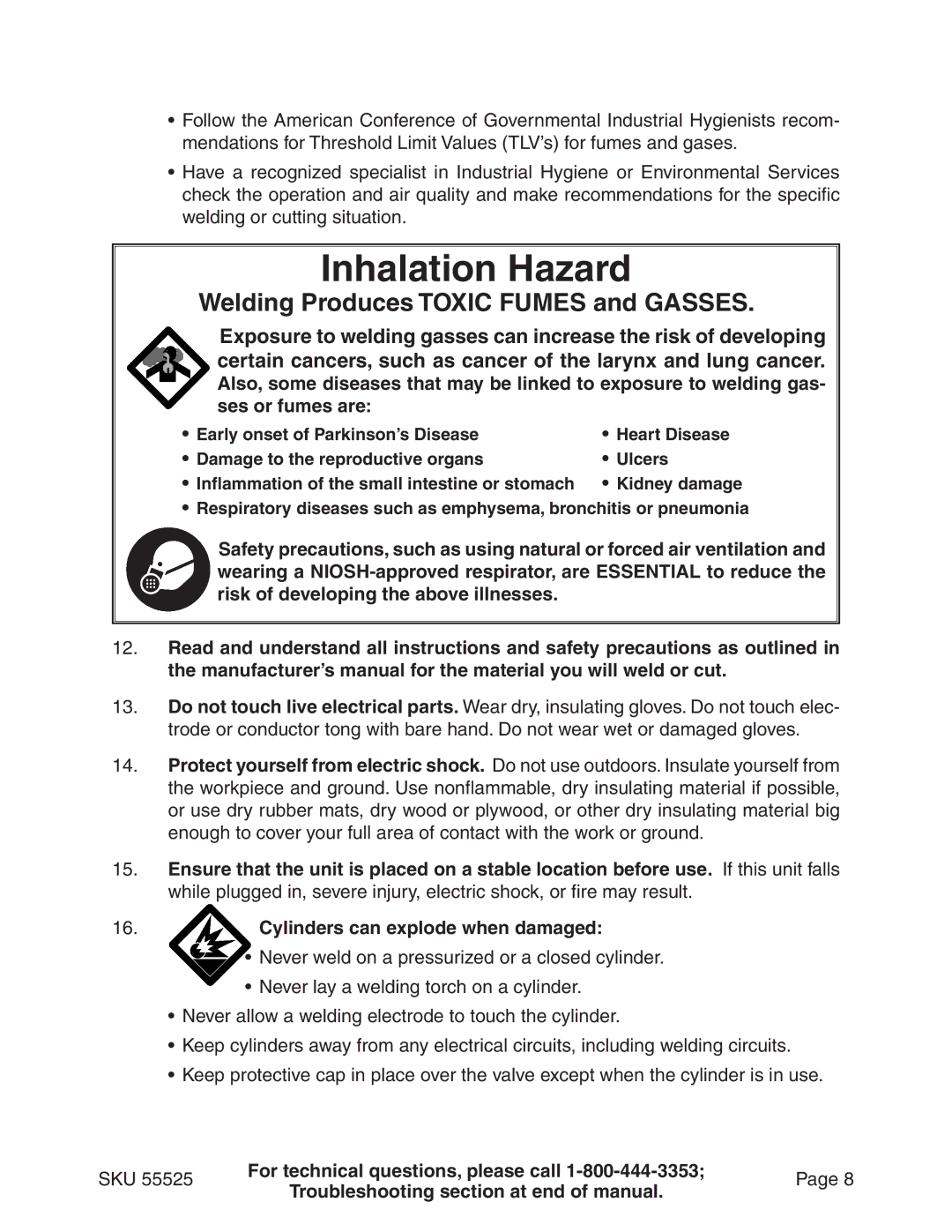
•Follow the American Conference of Governmental Industrial Hygienists recom- mendations for Threshold Limit Values (TLV’s) for fumes and gases.
•Have a recognized specialist in Industrial Hygiene or Environmental Services check the operation and air quality and make recommendations for the specific welding or cutting situation.
Inhalation Hazard
Welding Produces toxic fumes and gasses.
Exposure to welding gasses can increase the risk of developing certain cancers, such as cancer of the larynx and lung cancer.
Also, some diseases that may be linked to exposure to welding gas- ses or fumes are:
• Early onset of Parkinson’s Disease | • Heart Disease |
• Damage to the reproductive organs | • Ulcers |
• Inflammation of the small intestine or stomach | • Kidney damage |
•Respiratory diseases such as emphysema, bronchitis or pneumonia
Safety precautions, such as using natural or forced air ventilation and wearing a
12.Read and understand all instructions and safety precautions as outlined in the manufacturer’s manual for the material you will weld or cut.
13.Do not touch live electrical parts. Wear dry, insulating gloves. Do not touch elec- trode or conductor tong with bare hand. Do not wear wet or damaged gloves.
14.Protect yourself from electric shock. Do not use outdoors. Insulate yourself from the workpiece and ground. Use nonflammable, dry insulating material if possible, or use dry rubber mats, dry wood or plywood, or other dry insulating material big enough to cover your full area of contact with the work or ground.
15.Ensure that the unit is placed on a stable location before use. If this unit falls while plugged in, severe injury, electric shock, or fire may result.
16.Cylinders can explode when damaged:
•Never weld on a pressurized or a closed cylinder.
•Never lay a welding torch on a cylinder.
•Never allow a welding electrode to touch the cylinder.
•Keep cylinders away from any electrical circuits, including welding circuits.
•Keep protective cap in place over the valve except when the cylinder is in use.
SKU 55525 | For technical questions, please call | Page | |
Troubleshooting section at end of manual. | |||
|
|
